Abstract
PURPOSE: This exploratory study examined perceptions and beliefs of African Americans and Caucasians related to cancer care. Understanding belief systems and cultures optimizes cancer treatment and care delivery to ethnic minority individuals. PATIENTS AND METHODS: Focus groups were conducted with 39 African-American and Caucasian cancer patients. Data analysis included whole group analysis with a team of five researchers. RESULTS: Regardless of ethnicity, cancer patients share many of the same emotions and experiences, and want complete information and quality care. Differences were also apparent. African-American participants were more likely to report increased religious behaviors, believe that healthcare providers demonstrate care with simple actions and provision of practical assistance, and use church and community information sources. Caucasian participants were more likely to report spiritual but not overtly religious changes, and depend on healthcare providers for information. CONCLUSION: Understanding how culture colors perceptions, communication and information requirements is critical to providing effective care to ethnically diverse cancer patients. Findings have implications for professionals understanding ways patients seek information, the role of spirituality and religion in care, and ways healthcare providers demonstrate care.
Full text
PDF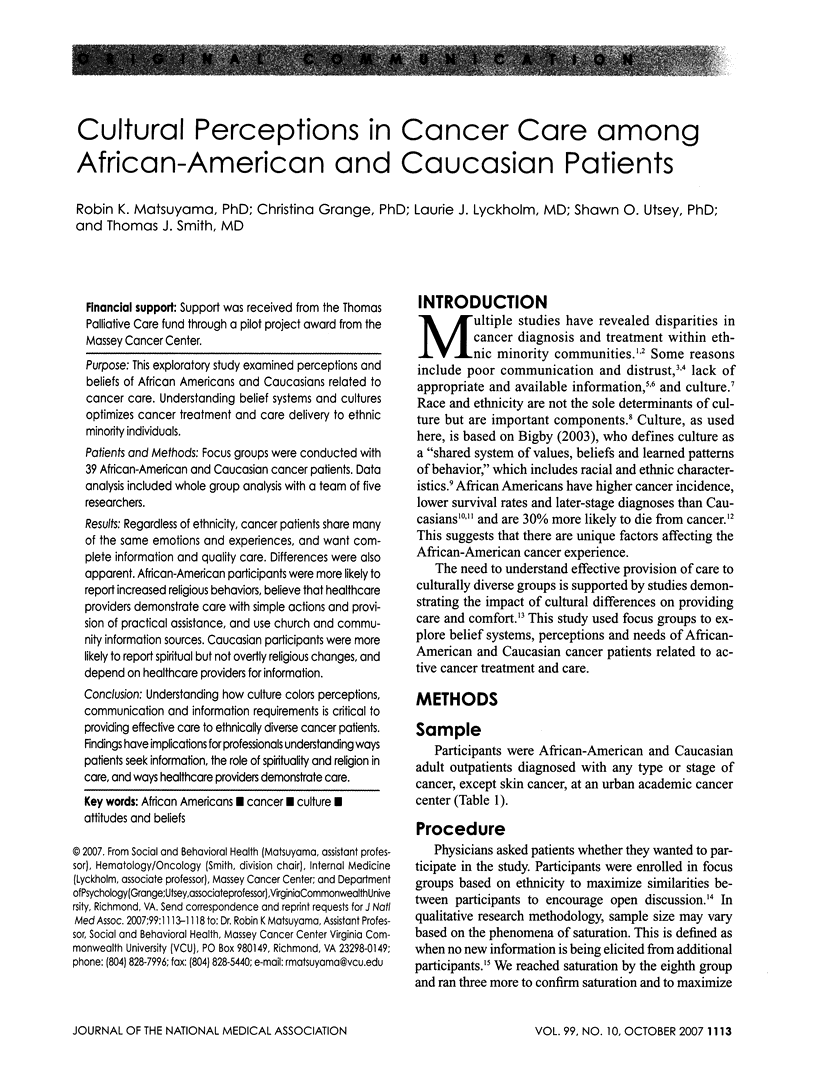
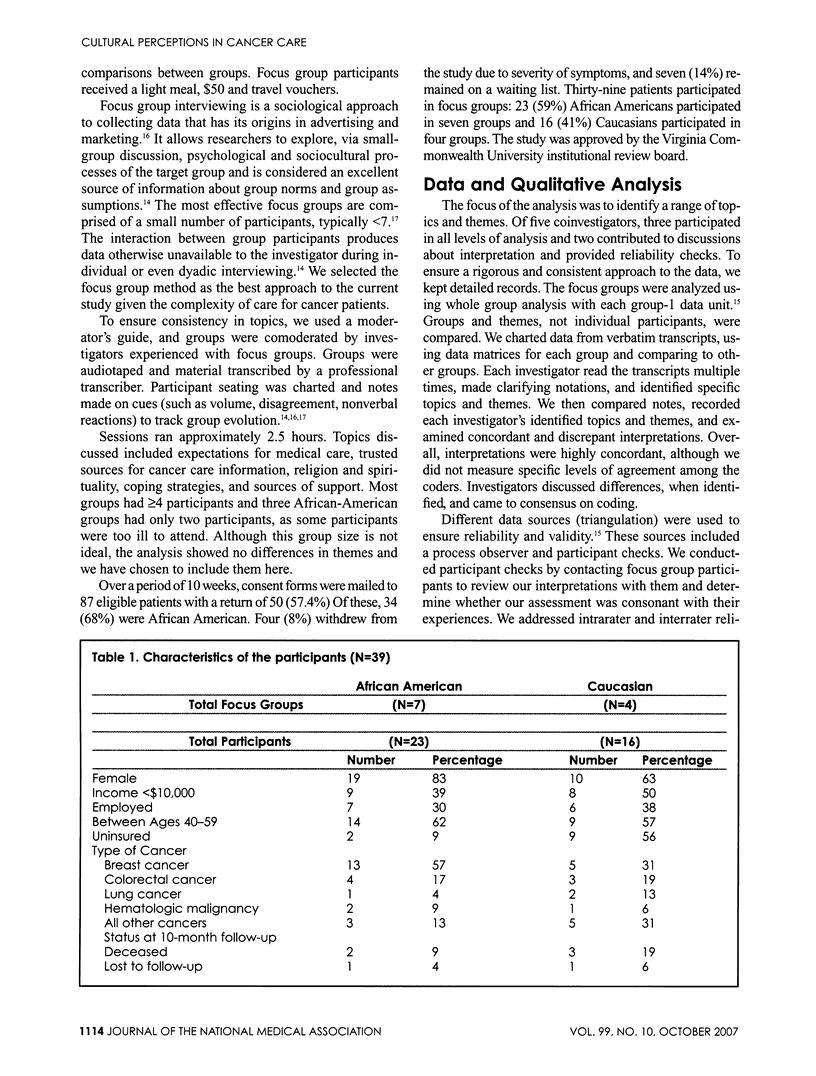
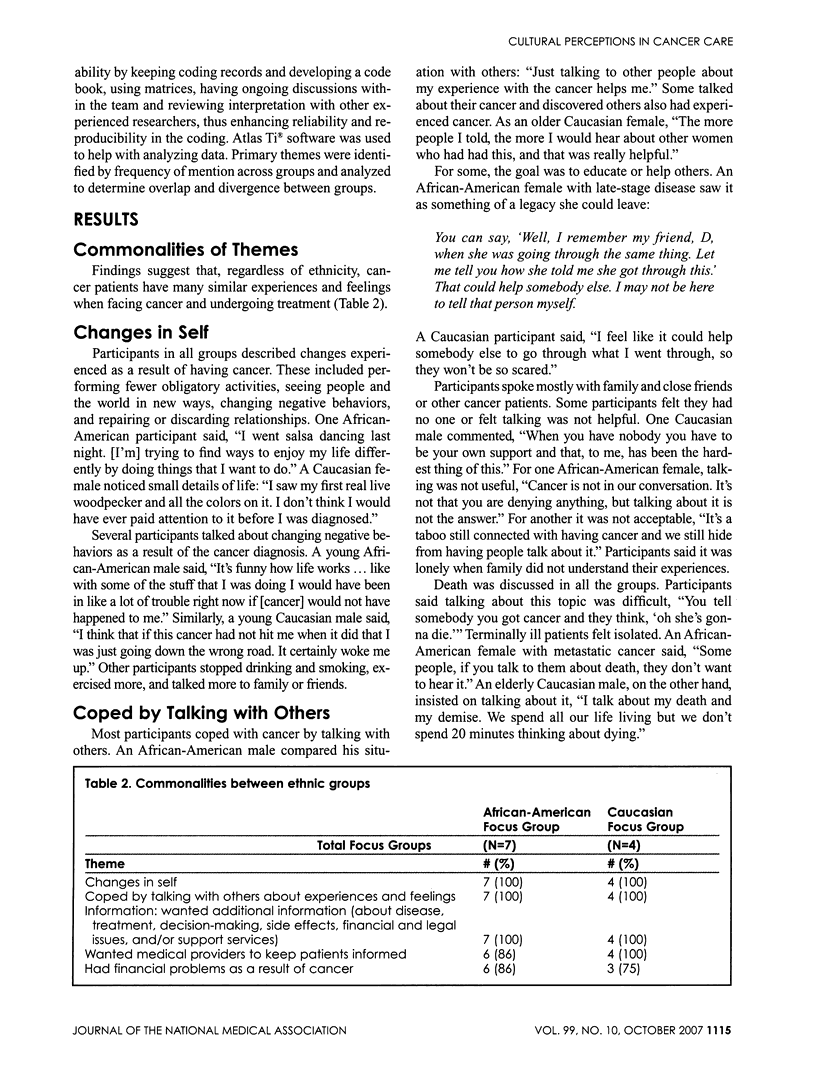
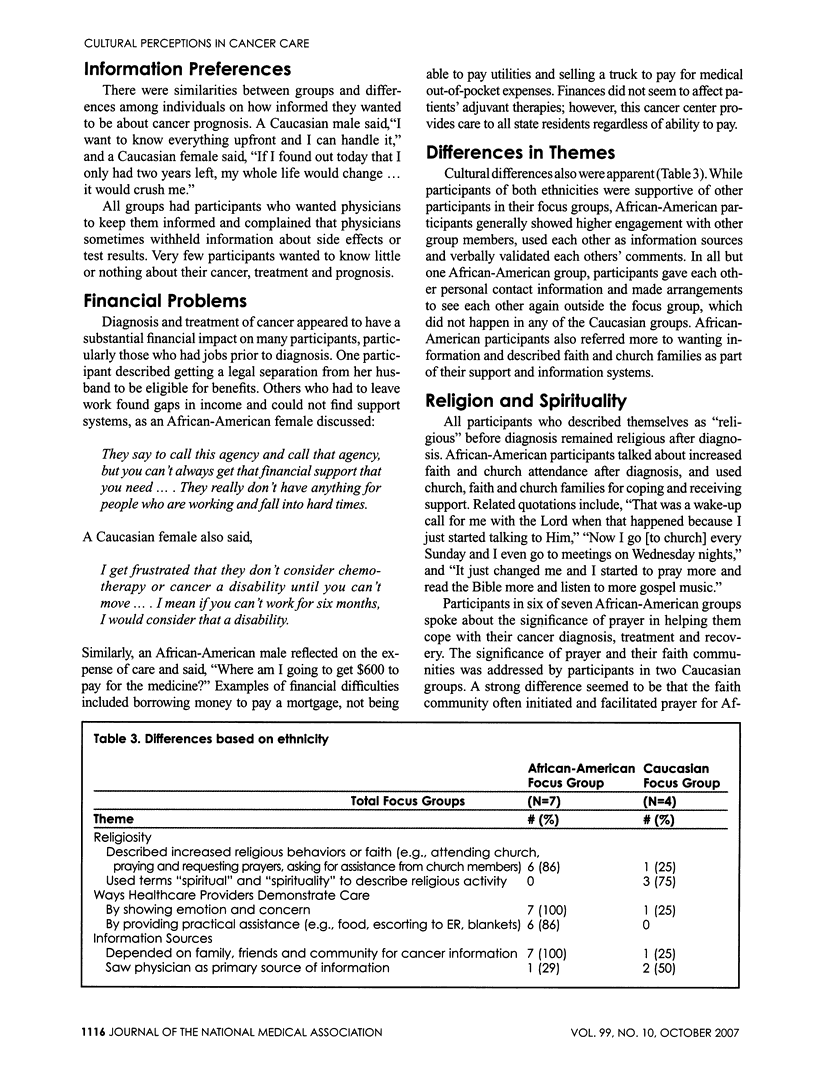
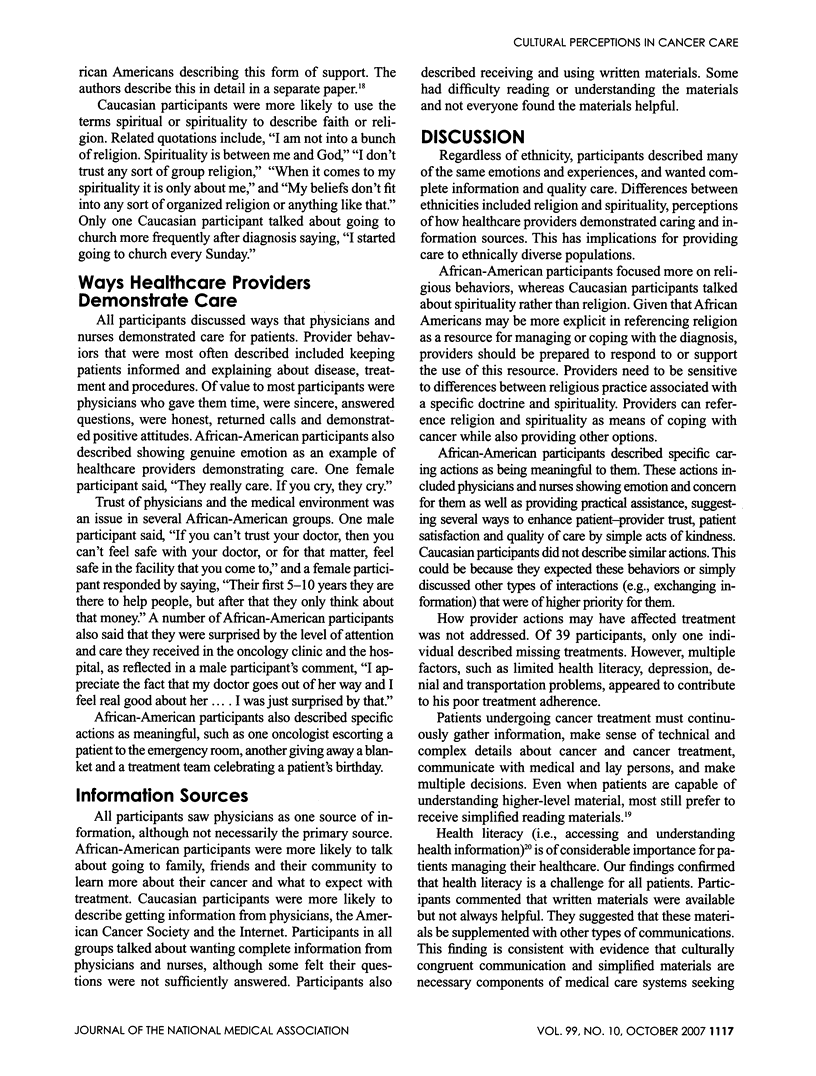

Selected References
These references are in PubMed. This may not be the complete list of references from this article.
- Anderson Laurie M., Scrimshaw Susan C., Fullilove Mindy T., Fielding Jonathan E., Normand Jacques, Task Force on Community Preventive Services Culturally competent healthcare systems. A systematic review. Am J Prev Med. 2003 Apr;24(3 Suppl):68–79. doi: 10.1016/s0749-3797(02)00657-8. [DOI] [PubMed] [Google Scholar]
- Chen Frederick M., Fryer George E., Jr, Phillips Robert L., Jr, Wilson Elisabeth, Pathman Donald E. Patients' beliefs about racism, preferences for physician race, and satisfaction with care. Ann Fam Med. 2005 Mar-Apr;3(2):138–143. doi: 10.1370/afm.282. [DOI] [PMC free article] [PubMed] [Google Scholar]
- Clegg Limin X., Li Frederick P., Hankey Benjamin F., Chu Kenneth, Edwards Brenda K. Cancer survival among US whites and minorities: a SEER (Surveillance, Epidemiology, and End Results) Program population-based study. Arch Intern Med. 2002 Sep 23;162(17):1985–1993. doi: 10.1001/archinte.162.17.1985. [DOI] [PubMed] [Google Scholar]
- Doescher M. P., Saver B. G., Franks P., Fiscella K. Racial and ethnic disparities in perceptions of physician style and trust. Arch Fam Med. 2000 Nov-Dec;9(10):1156–1163. doi: 10.1001/archfami.9.10.1156. [DOI] [PubMed] [Google Scholar]
- Gordon Howard S., Street Richard L., Jr, Sharf Barbara F., Souchek Julianne. Racial differences in doctors' information-giving and patients' participation. Cancer. 2006 Sep 15;107(6):1313–1320. doi: 10.1002/cncr.22122. [DOI] [PubMed] [Google Scholar]
- Groman Rachel, Ginsburg Jack, American College of Physicians Racial and ethnic disparities in health care: a position paper of the American College of Physicians. Ann Intern Med. 2004 Aug 3;141(3):226–232. doi: 10.7326/0003-4819-141-3-200408030-00015. [DOI] [PubMed] [Google Scholar]
- Isaacs Stephen L., Schroeder Steven A. Class - the ignored determinant of the nation's health. N Engl J Med. 2004 Sep 9;351(11):1137–1142. doi: 10.1056/NEJMsb040329. [DOI] [PubMed] [Google Scholar]
- Jemal Ahmedin, Clegg Limin X., Ward Elizabeth, Ries Lynn A. G., Wu Xiaocheng, Jamison Patricia M., Wingo Phyllis A., Howe Holly L., Anderson Robert N., Edwards Brenda K. Annual report to the nation on the status of cancer, 1975-2001, with a special feature regarding survival. Cancer. 2004 Jul 1;101(1):3–27. doi: 10.1002/cncr.20288. [DOI] [PubMed] [Google Scholar]
- Kagawa-Singer Marjorie, Kassim-Lakha Shaheen. A strategy to reduce cross-cultural miscommunication and increase the likelihood of improving health outcomes. Acad Med. 2003 Jun;78(6):577–587. doi: 10.1097/00001888-200306000-00006. [DOI] [PubMed] [Google Scholar]
- Lathan Christopher S., Neville Bridget A., Earle Craig C. The effect of race on invasive staging and surgery in non-small-cell lung cancer. J Clin Oncol. 2005 Dec 19;24(3):413–418. doi: 10.1200/JCO.2005.02.1758. [DOI] [PubMed] [Google Scholar]
- Ramanadhan Shoba, Viswanath K. Health and the information nonseeker: a profile. Health Commun. 2006;20(2):131–139. doi: 10.1207/s15327027hc2002_4. [DOI] [PubMed] [Google Scholar]
- Siminoff Laura A., Graham Gregory C., Gordon Nahida H. Cancer communication patterns and the influence of patient characteristics: disparities in information-giving and affective behaviors. Patient Educ Couns. 2006 Jul 24;62(3):355–360. doi: 10.1016/j.pec.2006.06.011. [DOI] [PubMed] [Google Scholar]


